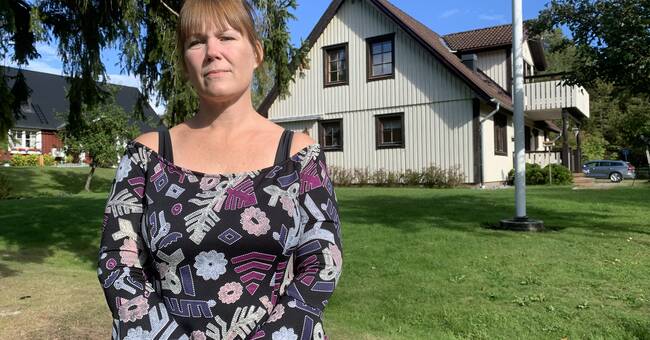Madelene Osunde Källström became ill in covid-19 in mid-April and after a few weeks she was so ill that she had to be taken by ambulance to Sollefteå hospital.
She was dehydrated and malnourished after being too ill to eat and drink enough.
Five months after her illness, she has not yet recovered.
- I still have tingling and pain both in the chest and arm, no feeling in the big toe, one night I woke up that it was like lightning in the right eye.
There are many different symptoms, sometimes it just comes as palpitations.
Sold the house and moves to apartment
Madeleine's problems have led her and her husband Uyi Osunde, who has also been seriously ill in covid-19, to make the decision to sell the house in Uusimaa and instead move to an apartment that requires less work.
- There is a lot to do when you have a house, maintain and mow grass.
With the nerve pain and fatigue, I can not bear it, says Madelene, who is now back at work in elderly care.
Knowledge about the long-term health effects of covid-19 is limited.
At the same time, a survey from Novus shows that there may be as many as 150,000 people who have long-term illness in covid-19.
Investigation is ongoing nationally
During the autumn, the Swedish Agency for Medical and Social Evaluation, SBU, on behalf of the government, will investigate which symptoms are typical of long-term illness in covid-19 and which treatment is best.
- I do not blame any doctor who can not say what it is.
But you feel the body itself, that the virus goes along nerves, muscles and heart.
I have always been a healthy person who sports, exercises and eats healthily, says Madelene Osunde Källström.
She states that there is a great need for information and support among those who have long-term problems after covid-19.
- I wish I could help others, there are many who feel like this.
Then I think there should be some support group that we can turn to.
And that doctors and researchers can use us and our experiences if we have power and strength.

